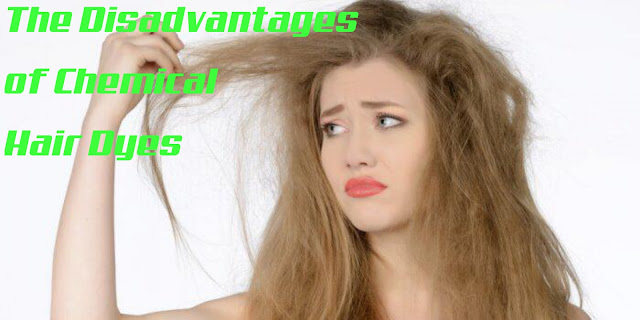The Disadvantages of Chemical Hair Dyes
Hair dyeing has been around for thousands of years, and it shows no signs of stopping.
While there are many benefits to changing your hair color, it’s important to be aware of the drawbacks that come with chemical hair dyes, as these can be toxic to both you and the environment.
Here are just some of the ways that chemical hair dyes can be harmful to you, your loved ones, and the planet we all share.
What are the possible side effects?
Color doesn’t come without a cost.
One obvious disadvantage to hair dye is all of those harsh chemicals, which aren’t always good for you and can cause reactions like irritated skin and rashes.
People who experience adverse reactions to chemical dyes should try a gentler option like henna instead, or look into semi-permanent coloring options.
Using natural products also eliminates harmful chemicals from your bathroom cabinet and might help your hair grow healthier and thicker over time.
If you do choose to go with chemical dyes, it’s important to note that some formulations are more toxic than others – different brands contain different amounts of ammonia, formaldehyde, and other potentially hazardous chemicals.
Always read product labels carefully and check out online reviews before buying any colorant.
And remember: It’s not just what goes on your head that matters; take care of your locks by using gentle shampoo and avoiding heat styling tools when possible.
The less damage you inflict on your hair, the better off it will be in the long run!
How long does it last?
- Chemical hair dyes, much like traditional dyes, are fairly permanent.
- It’s true that you can still see a little bit of your natural color peeking through after using a chemical dye—but it’s far less than with normal dye.
- If you do want to change your hair color later on, there are ways to strip some or all of your artificial color out so that you can start fresh with your natural shade again.
- But if you’re looking for something more temporary, keep in mind that chemical dyes tend to fade more quickly than normal hair dyes.
- Be sure to touch up your hue every few weeks for best results!
- Because they’re not as long-lasting as other types of dyes, chemical ones often need to be applied more frequently than others.
- This can make them an inconvenience if you don’t have time (or money) to regularly return to the salon for retouches and new application.
- The process also involves mixing together different chemicals and may even include peroxide, ammonia and bleach—all chemicals that could cause damage to your scalp and hair over time if not used properly! Finally, because they use many toxic ingredients, chemically dyed strands also expose users—and especially stylists applying them—to health risks such as allergies or even burns.
- Some hair-dyeing ingredients have even been linked with cancerous effects over long-term use!
Could You Wear Them?
Is there an alternative?
- One option that's often ignored is to just let your hair grow.
- Having longer hair provides more options.
- For example, you can pin it up, wear it in a braid or ponytail, or tuck it into a hat—all things you can't do with short hair.
- It also makes wearing certain hairstyles easier and allows you to experiment with new looks without having to worry about damage.
- Another alternative is to use natural alternatives like henna dye or tea tree oil; these are less damaging and still allow you to play around with color for special occasions.
- If you want something more permanent, consider going gray: Many women find they look younger when their hair turns gray.
- And there are plenty of ways to make graying look great—from highlights to lowlights to ombre dyes. If none of those work for you, then yes, chemical dyes may be an option—but remember that they come with risks as well as benefits.
Can you still use your favorite shampoo and conditioner with henna?
Yes, you can use your favorite shampoo and conditioner with henna.
The only thing to keep in mind is that some products will cause a color change in your hair.
If you want to maintain your color, we recommend using our Henna Color Creme or Henna Color Fixative after applying henna.
These cremes are designed to be used with chemical dyes and will not affect your color. Our Moroccan Rhassoul Clay Powder is also another great option for maintaining color.
It’s 100% natural and contains no chemicals so it won’t react with any other product.

Comments
Post a Comment